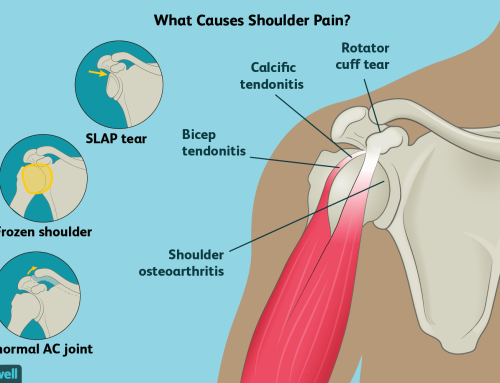
In today’s health-conscious world, amidst the plethora of dietary advice, one question persists: what is too much protein? Protein has become a buzzword among fitness enthusiasts and diet aficionados.
Why Is It Important?
What Role Does Protein Play in Our Body?
Protein is a fundamental macronutrient, essential for various bodily functions. It’s not just about building muscle; protein plays a crucial role in repairing tissues, producing enzymes, and supporting immune function. When you consume protein-rich foods, the body breaks them down into amino acids, which are the building blocks of life. These amino acids are vital for maintaining muscle mass, especially as we age. Protein may also contribute to feeling fuller for longer, which can aid in weight management. However, it’s essential to balance intake with other macronutrients like carbohydrates and fats, ensuring a well-rounded diet.
How Much Do We Need Daily?
The amount one needs daily can vary depending on age, gender, activity level, and overall health objectives. While the general guideline is 0.8 grams of protein per kilogram of body weight, athletes and those engaging in heavy physical activity might require more. The recommended daily allowance is designed to meet the needs of most healthy individuals, but it’s important to tailor protein intake to your specific lifestyle and goals. Consuming more than you need doesn’t necessarily translate to better health and can potentially lead to consuming excessive calories.
In some cases, too much protein can lead to health issues, particularly if the sources are high in saturated fat, like red meat. An excessive intake may increase the risk of heart disease and elevate cholesterol levels. For those focused on muscle building, it’s important to remember that while protein is vital, other factors like caloric intake and resistance training also play significant roles.
What Are the Different Sources?
Protein can be derived from various sources, each offering unique benefits. Animal proteins, such as chicken, fish, and eggs, are complete proteins, meaning they contain all essential amino acids necessary for the body. Plant proteins, found in legumes, grains, and nuts, provide a diverse range of nutrients and are often high in fiber. Protein shakes and supplements are also popular, particularly among those following a high-protein diet, but whole food sources should remain the primary focus for most people.
Too Much Protein?
What Are High-Protein Diets?
Having too much protein comes from diets that emphasize a greater proportion of protein compared to the traditional dietary guidelines. These diets often suggest increasing intake to more than the usual recommended daily allowance to aid in weight loss and muscle gain. Such diets can include a variety of foods high in protein, like lean meats, dairy, and legumes, and are sometimes supplemented with shakes. The idea is to replace some carbohydrates and fats to help manage hunger and support metabolic functions.
High-protein diets have garnered attention for their potential benefits, but it’s essential to consider their long-term implications. While they can be effective for short-term weight loss, maintaining a balanced intake of carbohydrates and fats is crucial for overall health. The body’s energy levels depend significantly on carbohydrates, so drastically reducing them can lead to fatigue and decreased performance. Moreover, the source is vital; opting for low-fat and nutrient-dense options can help mitigate some associated health risks. It’s all about finding a dietary approach that works for you without compromising essential nutrients.
Why Have These Diets Become Popular?
High-protein diets have surged in popularity due to their potential benefits in weight management and muscle building. They are often chosen by those looking to lose weight quickly, as protein has a satiating effect, meaning it helps you feel fuller longer. This can reduce overall calorie intake, making it easier to create a calorie deficit necessary for weight loss. Additionally, these diets are popular among bodybuilders and athletes, as protein is crucial for muscle repair and growth.
What Are Some Examples?
The Atkins Diet emphasizes low carbohydrate intake while boosting protein consumption, promoting weight loss through ketosis. The Paleo Diet focuses on consuming foods presumed to have been eaten by early humans, prioritizing lean meats and fish while avoiding processed foods. Similarly, the Ketogenic Diet is high in fat and moderate in protein, designed to shift the body’s metabolism towards burning fats rather than carbohydrates.
Other examples include the Zone Diet, which balances macronutrients with a specific emphasis on protein intake to regulate hormonal balance and reduce inflammation. These diets often have different rules and structures, but they share the common goal of increasing protein intake to support various health and fitness objectives. While these diets can be effective, it’s crucial to choose one that aligns with your health goals and lifestyle, ensuring it provides a balanced nutrient intake and does not lead to potential health risks.
Are There Any Potential Benefits?
Can High-Protein Diets Aid in Weight Loss?
High-protein diets are often touted for their weight loss benefits, primarily due to protein’s satiating effect. Eating more can help reduce hunger and increase feelings of fullness, which can lead to a lower overall calorie intake. This is particularly beneficial for those looking to shed pounds, as creating a calorie deficit is key to weight loss. Additionally, the metabolic process requires more energy than carbohydrates or fats, potentially boosting calorie burn and aiding weight loss efforts further.
Moreover, these diets can help preserve lean body mass during weight loss, which is crucial for maintaining metabolism. However, it’s important to note, the sustainability of such diets is often questioned. Balancing protein with other macronutrients and ensuring a varied diet is essential for long-term success. Individuals should tailor their intake to their specific needs while considering the overall composition of their diet to avoid potential health risks associated with excessive protein consumption.
How Does Too Much Protein Affect Muscle Building?
Protein is a vital component in muscle building, making these diets particularly appealing to athletes and bodybuilders. Consuming adequate protein is essential for repairing and building muscle tissues damaged during intense physical activity. The amino acids from diet are used to synthesize new muscle proteins, aiding in muscle growth and recovery. HThese diets can provide the necessary building blocks to support these processes, especially when combined with resistance training.
However, it’s important to remember that muscle building isn’t solely dependent on protein intake. Factors such as training intensity, overall caloric intake, and rest also play significant roles. Consuming more than the body needs does not result in additional muscle gain and can lead to storing excess calories as fat. Therefore, they should be part of a comprehensive fitness and nutrition plan that considers all aspects of health and performance. Balancing protein with other nutrients ensures the body receives the necessary fuel for optimal performance.
What Are the Potential Health Risks?
While protein is an essential part of a healthy diet, consuming too much can pose various health risks. One of the primary concerns is the potential impact on the kidneys, particularly for individuals with pre-existing kidney conditions. High-protein diets can increase the workload on the kidneys, as they are responsible for filtering waste products from protein metabolism. Additionally, these diets, especially when eating from animal sources, can lead to increased levels of cholesterol and saturated fat, raising the risk of heart disease.
Another risk associated with excessive protein consumption is the potential for nutrient deficiencies. Focusing too heavily on protein can lead to an imbalance in the diet, reducing the intake of other essential nutrients found in carbohydrates and fats. This imbalance can affect overall health, leading to issues such as decreased energy levels and impaired cognitive function. It’s crucial to approach intake with a balanced mindset, ensuring that it complements a diet rich in fruits, vegetables, and whole grains, rather than replacing these vital food groups.
How Does This Affect The Kidneys?
Excessive protein intake can strain the kidneys, particularly over the long term. The kidneys play a crucial role in filtering waste products generated from protein metabolism, and consuming high levels increases this workload. For individuals with healthy kidneys, this may not pose an immediate issue, but for those with kidney disease or compromised kidney function, it can exacerbate their condition. These diets can lead to increased production of urea and other waste products, which can accumulate and cause further kidney damage.
Furthermore, the risk is heightened when the protein consumed is primarily from animal sources high in saturated fats, which can increase blood pressure and cholesterol levels, further impacting kidney health. Ensuring that intake is within the recommended daily allowance and choosing a mix of plant and animal protein sources can help mitigate these risks. Regular monitoring of kidney function and consulting with healthcare professionals can provide guidance on safe protein consumption, particularly for those at risk of kidney disease.
Are There Long-Term Consequences to Consider?
Yes, these types of diets can lead to several potential health concerns. One of the most significant risks is the increased likelihood of kidney disease, particularly for those predisposed to kidney issues. Additionally, diets high in animal protein sources can elevate cholesterol levels, increasing the risk of heart disease. The high intake of saturated fats found in red meat and full-fat dairy products can contribute to this risk, as well as the risk of developing certain cancers, such as colon cancer.
Moreover, focusing too heavily on protein can result in a lack of dietary variety, potentially leading to vitamin and mineral deficiencies. This lack of balance can affect overall health and well-being, as other macronutrients and micronutrients are essential for various bodily functions. To avoid these long-term consequences, it’s crucial to monitor protein intake and ensure it aligns with individual health needs and goals. Consulting with nutrition experts and making informed dietary choices can help maintain a balanced and healthful diet.
Plant Protein vs Meat?
The debate is ongoing, with each offering distinct benefits and drawbacks. Plant proteins, sourced from foods like beans, lentils, and nuts, are typically lower in saturated fat and cholesterol compared to animal proteins. They also come with added benefits of fiber and phytonutrients, which are beneficial for digestive and overall health. Plant proteins are often more environmentally sustainable, making them a favorable choice for those concerned about environmental impact.
The choice between plant and meat protein should be guided by individual health goals, dietary preferences, and ethical considerations, but we normally recommend trying to consume much more plant protein, if possible.
Finding the Right Balance
Athletes and those with higher physical activity levels may require more protein to support muscle repair and growth. Additionally, older adults might need increased intake to prevent muscle loss associated with aging.
It’s important to assess your individua needs based on your lifestyle and health objectives. Consulting with a nutritionist or dietitian can provide personalized guidance, ensuring your intake aligns with your goals. Understanding how much protein you need is crucial for maintaining a balanced diet and avoiding the pitfalls of overconsumption. By considering your specific needs, you can tailor your intake to support your health and well-being effectively.
How Can You Balance Protein with Other Nutrients?
Balancing with other nutrients is essential for a well-rounded diet that supports overall health. While protein is important, carbohydrates and fats also play crucial roles in providing energy and supporting bodily functions. Incorporating a variety of foods, such as whole grains, fruits, vegetables, and healthy fats, can ensure a balanced intake of macronutrients. This diverse approach helps prevent nutrient deficiencies and maintains optimal health.
Meal planning and mindful eating can help achieve this balance, allowing you to enjoy a range of flavors and textures while meeting your nutritional needs. It’s important to avoid focusing solely on protein at the expense of other nutrients, as this can lead to imbalances and health issues. By considering the nutritional value of all foods and making informed choices, you can create a diet that supports your health and wellness goals. Regularly reviewing your dietary habits and adjusting as needed can help maintain this balance over time.
Conclusion: Is There a “Too Much” When It Comes to Protein?
What Is the Consensus Among Nutrition Experts?
The consensus among nutrition experts is that while protein is an essential nutrient, there is indeed such a thing as consuming too much. Exceeding the recommended daily allowance can lead to potential health risks, particularly if the protein sources are high in saturated fats. Experts emphasize the importance of balanced nutrition that includes a variety of macronutrients to support overall health. While high-protein diets can offer benefits, they should be approached with caution and tailored to individual needs.
Regularly consulting with healthcare professionals and staying informed about the latest nutritional research can help individuals make safe and effective dietary choices. It’s important to listen to your body and adjust your intake based on your personal health goals and lifestyle. By doing so, you can enjoy the benefits of protein without incurring the risks associated with overconsumption. A mindful approach to protein consumption ensures it contributes positively to your health and well-being.





